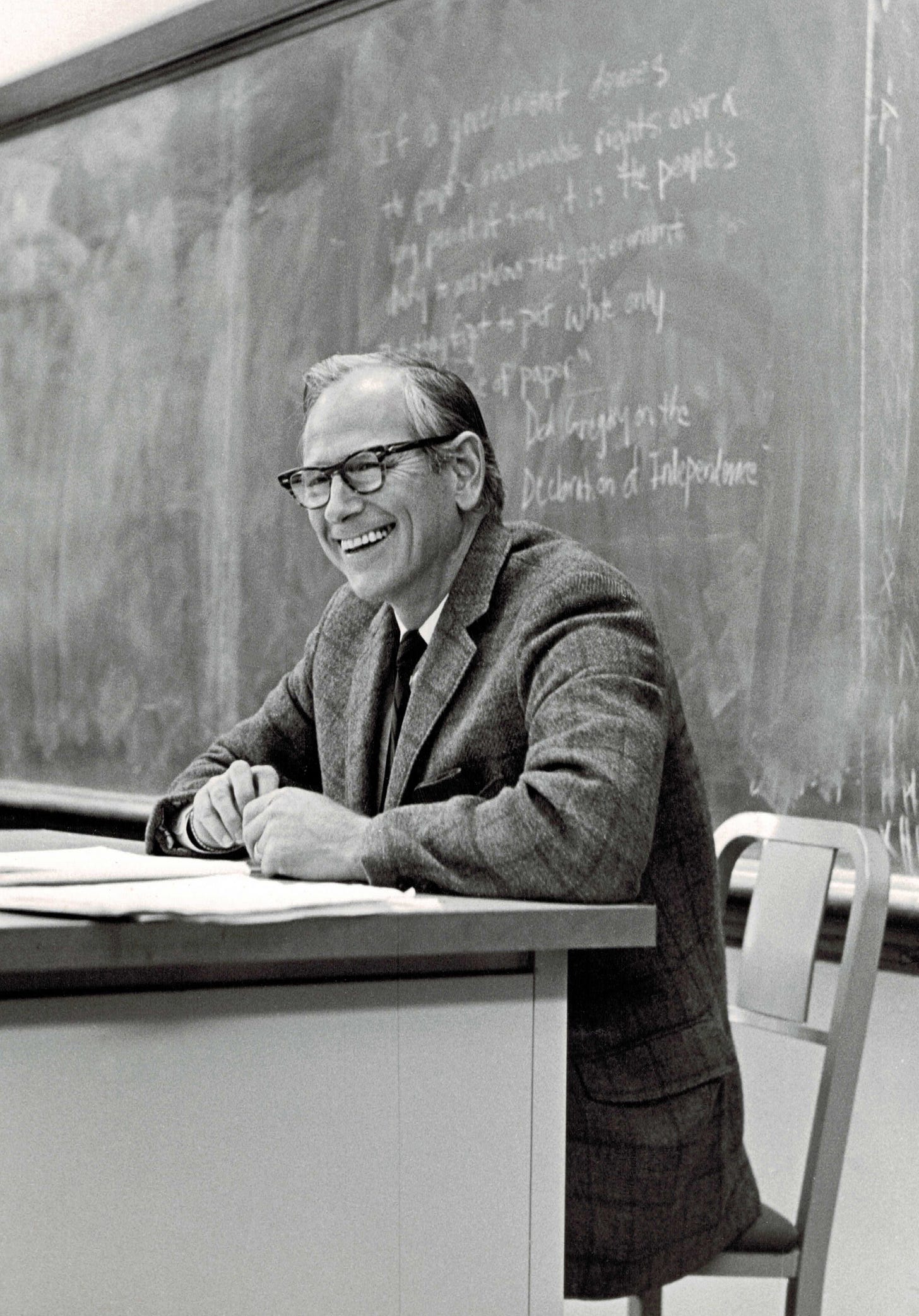Who is Robert Dahl?
Robert Dahl was an American political theorist and Sterling Professor Emeritus of Political Science at Yale University. Dahl pursued his undergraduate studies at the University of Washington, graduated with a BA in Political Science in 1936. He served as editor of the campus newspaper until his resignation over concerns about the university’s censorship practices. Dahl would go on to earn his PhD from Yale and began formulating new political theories shortly thereafter.
What did Dahl contribute to the field?
Dahl is the originator of the pluralist theory of democracy, which holds that interest groups, even with an imbalance of power, compete for favorable political outcomes. Dahl’s most influential work is, arguably, On Democracy. His other works include: Who Governs: Democracy and Power in the American City, Democracy and Its Critics, and Polyarchy: Participation and Opposition.
On Democracy
In this book, Dahl describes what democracy is, what its hallmarks are, and how it is attained. Due to the work’s extensiveness, I have taken the liberty of summarizing Dahl’s key arguments below:
Dahl presents the opportunities provided for by democracy, each of which are necessary if members of a society “are to be politically equal in determining the policies of the association” as (pp. 38):
Effective participation
Equality in voting
Gaining enlightened understanding
Exercising final control over the agenda
Inclusion of adults
Dahl asserts that “democracy has at least ten advantages” when compared to other forms of governance (pp. 60 - 61):
Democracy helps to prevent government by cruel and vicious autocrats.
Democracy guarantees its citizens a number of fundamental rights that nondemocratic systems do not, and cannot grant.
Democracy insures its citizens a broader range of personal freedom than any feasible alternative to it.
Democracy helps people to protect their own fundamental interests.
Only a democratic government can provide a maximum opportunity for persons to exercise the freedom of self-determination - that is, to live under laws of their own choosing.
Only a democratic government can provide a maximum opportunity for exercising moral responsibility.
Democracy fosters human development more fully than any feasible alternative.
Only a democratic government can foster a relatively high degree of political equality.
Modern representative democracies do not fight wars with one another.
Countries with democratic governments tend to be more prosperous than countries with nondemocratic governments.
Dahl finally details the five conditions that lay the ground for democracy; three of them essential, two of them favorable (pp. 147):
Essential
Control of military and policy by elected officials
Democratic beliefs and political culture
No strong foreign control hostile to democracy
Favorable
A modern market economy and society
Weak subcultural pluralism
Polyarchy: Participation and Opposition
Robert A. Dahl's groundbreaking book "Polyarchy: Participation and Opposition" was released in 1971. This book is essential reading for anyone studying political science, particularly those who research democracy and its variants. In contrast to the idealized version of direct democracy that is frequently impractical in vast, complicated civilizations, Dahl presents the idea of "polyarchy", a more practical kind of democracy that exists in large-scale cultures.
Dahl characterizes polyarchy as a political structure that has the following:
A high degree of citizen participation and contestation of the government.
This means that in order for a society to aspire to the values of democracy, it must permit all individuals to participate inclusively in the political process.
A guarantee that opposition groups have legitimate opportunities to challenge the leadership of the government.
There are key concepts to take from this publication. Dahl lists a number of requirements for a polyarchy: free and fair elections, the ability for all adults to vote, the right to run for office, the freedom of speech, the availability of alternate information sources, and associational autonomy (the freedom to establish one's own groups or organizations) (pg.3).
The book's title highlights the two fundamental tenets of Dahl's theory of polyarchy. Opposition emphasizes the significance of having a credible and strong opposition that can take on the existing government and give the people options. Participation refers to the ability and right of citizens to participate in the political process.
Why should you care about Dahl?
Dahl’s work has been influential in establishing legitimate, observable criteria by which to evaluate the degree and health of societies’ democratic institutions. It is through Dahl’s interpretation of what constitutes as democracy that we can grade the severity of democratic backsliding in mature nations and track the emergence of vibrant democracies in reformed countries in the aims of implementing realistic solutions to preserve liberty. Additionally, Dahl’s work provides insights into the subtleties of political rivalry and involvement, aiding in the understanding of the complexity of political systems that do not cleanly fit into "democratic" or "authoritarian" labels.





